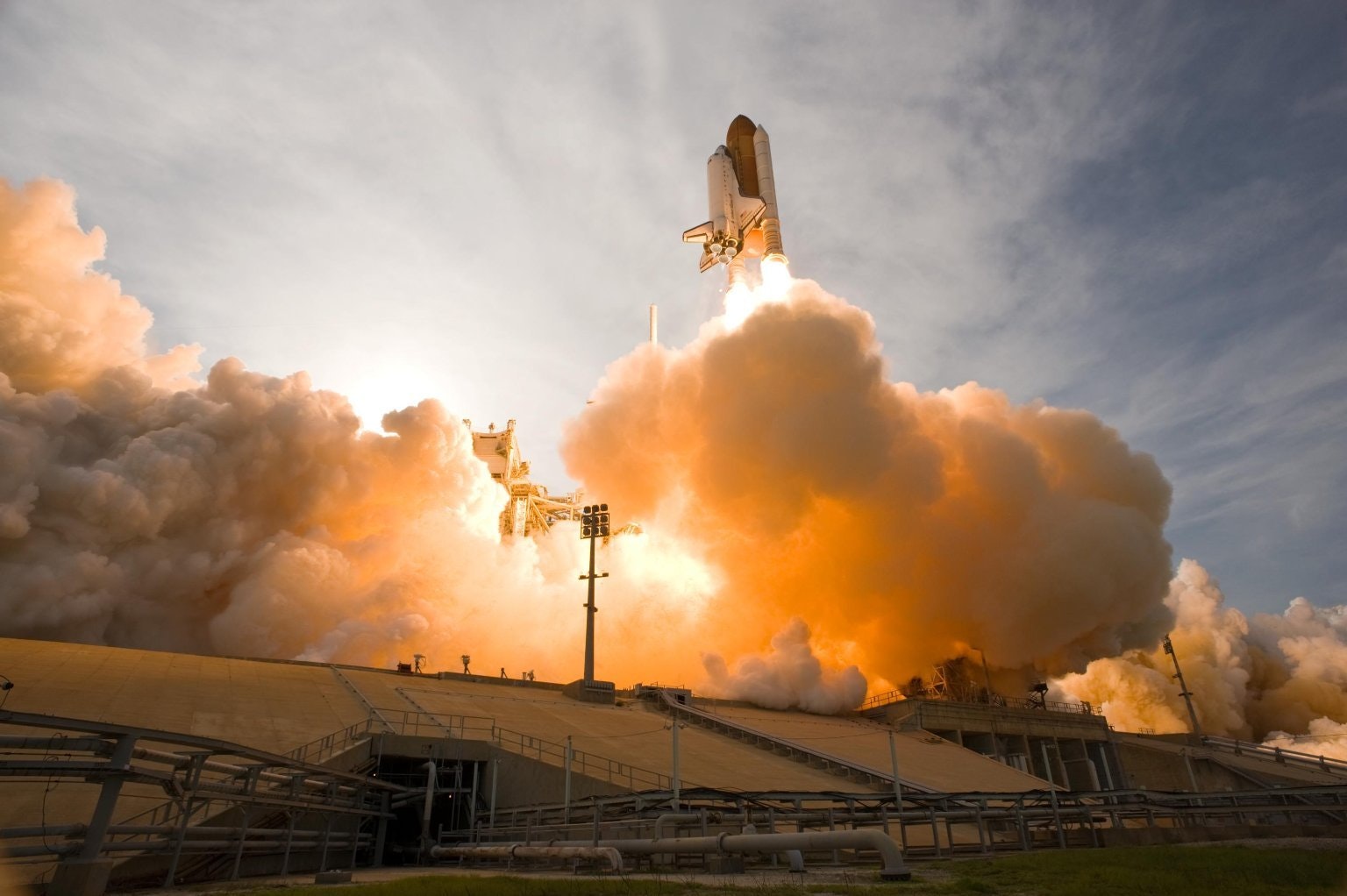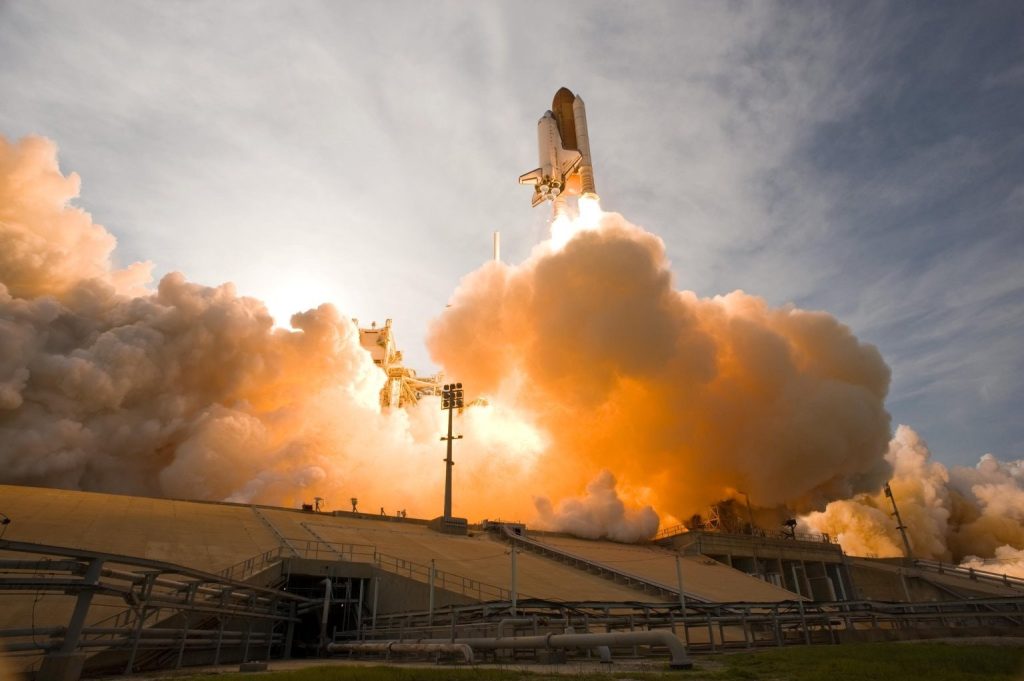Table of Contents
ToggleWhen it comes to studying Aerospace Engineering in Canada, it’s no wonder that many international students are setting their sights on the Great White North.
Why? Well, for starters, Canada boasts some of the world’s top-ranked universities in the field. This makes it an attractive destination for aspiring aerospace engineers. But that’s just the beginning. The country’s thriving aerospace industry, government funding for research and development, and tuition fees make it a truly compelling choice.
In this article, we’re going to take you on a journey through the exciting world of aerospace engineering. Whether you’re a recent high school grad or a seasoned engineering enthusiast, join us as we explore Aerospace Engineering in Canada!
1. Why Study Aerospace Engineering in Canada?
Students worldwide choose to study aerospace engineering in Canada for several compelling reasons:
- Canada hosts 22 top-ranked universities in Engineering and Technology.
- Canada’s aerospace industry, with 700+ companies and 200,000+ employees, provides numerous job opportunities for graduates in aeronautical engineering in Canada.
- The Canadian government generously funds aerospace research and development, ensuring access to cutting-edge resources and technologies.
- Canadian aerospace programs often have lower tuition fees, making them budget-friendly for international students.
- Canadian aerospace engineering programs provide hands-on experience through projects, internships, and industry collaborations, preparing students for a successful career.
2. Top 5 Universities for Aerospace Engineering, Canada
Here are the best aerospace engineering universities in Canada, each renowned for its academic excellence and commitment to shaping future aerospace engineers. Below, you’ll find detailed information about these institutions.
| University | Institute Type | QS World Subject Ranking 2021 |
| McGill University | Public | 40 |
| Carleton University | Public | 401-450 |
| Concordia University | Public | 281 |
| Ryerson University | Public | 389 |
| Laval University | Public | 337 |
2.1. McGill University
McGill University is home to the prestigious McGill Institute for Aerospace Engineering (MIAE). This is one of the aerospace engineering colleges in Canada boasting an outstanding global reputation for delivering top-tier education.
| Programme | Duration | Annual Tuition Fees |
| Bachelor of Engineering (Minor in Aerospace Engineering) | – | 52,698 CAD per year |
| Master of Aerospace Engineering | 3 years full-time, 5 years part-time | 25,724 CAD per year |
2.2. Carleton University
Carleton University, accredited by the esteemed Canadian Engineering Accreditation Board, offers diverse Aerospace Engineering programmes for undergraduates and graduates. This is made possible through a collaborative effort with the University of Ottawa, creating the Ottawa-Carleton Institute for Mechanical and Aerospace Engineering.
| Programme | Duration | Annual Tuition Fees |
| Bachelor of Engineering – Aerospace Engineering | 3 years | 41,884 CAD per year |
| Master of Engineering – Aerospace Engineering | 1-2 years | 24,050 CAD per year |
| Master of Applied Science – Aerospace Engineering | 2 years | 18,586 CAD per year |
2.3. Concordia University
Concordia University’s Gina Cody School of Engineering and Computer Science offers both undergraduate and graduate degrees in Aerospace Engineering. Additionally, the undergraduate programme incorporates a 12-16 week co-op experience.
| Programme | Duration | Annual Tuition Fees |
| Bachelor of Engineering – Aerospace Engineering | 4-5 years | 30,005 CAD per year |
| Master of Aerospace Engineering | 2 years full-time, 4 years part-time | 23,364 CAD per year |
2.4. Ryerson University
Ryerson University has garnered a strong reputation for its engineering degree programmes, including its popular professional master’s diploma in aerospace engineering management. This one-year full-time program is in high demand among students.
| Programme | Duration | Annual Tuition Fees |
| Bachelor of Engineering – Aerospace Engineering | 4 years full-time; 5 years with co-op internship programme | 38,457 CAD per year |
| Master of Applied Science – Aerospace Engineering | 2 years full-time, 4 years part-time | 26,710 CAD per year |
| Master of Engineering – Aerospace Engineering | 2 years full-time, 4 years part-time | 26,710 CAD per year |
| Professional Master’s Diploma in Aerospace Design Management | 1 year full-time | 14,700 CAD per year |
2.5. Laval University
Laval University is renowned for its specialization in master’s degree programmes focused on aeronautical engineering and space technology. These aerospace engineering courses in Canada are conducted in collaboration with businesses and universities in Quebec. This makes it a hub for aeronautical engineering studies.
| Programme | Duration | Annual Tuition Fees |
| Masters in Aerospace Engineering | 2 years | 16,860 CAD per year |
3. PG Diploma in Aerospace Engineering in Canada
Recently, the Diploma in Aeronautical Engineering in Canada for international students has seen a surge in popularity due to its reputation for offering practical training. Here’s a list of universities in Canada that offer diplomas in aerospace engineering and aeronautical engineering.
| University | Programme Offered |
| Ryerson University | Professional Master’s Diploma in Aerospace Design Management |
| Fanshawe College | Graduate Certificate in Applied Aerospace Manufacturing |
| Georgian College | Advanced Diploma in Aviation Management |
| Yukon University | Diploma in Aviation Management |
| Centennial College | PG Diploma in Aerospace Manufacturing Engineering Technician Advanced Diploma in Aerospace Manufacturing Engineering Technology |
| British Columbia Institute of Technology (BCIT) | Diploma in Aviation Maintenance Technician – Avionics Certificate in Aircraft Gas Turbine Technician |
4. Eligibility Criteria
Admission requirements for the best aerospace engineering colleges in Canada vary based on your chosen programme.
4.1. Educational Qualification
| Degree | Admission Requirements |
| Diploma/Undergraduate | Completion of 10+2 (with physics and mathematics as compulsory subjects) |
| Master’s/PG Diploma | Completion of a relevant bachelor’s degree with min. B+ grade or 75% (from a recognised institution) |
4.2. English Language Proficiency Test Scores
| Programme | IELTS Score |
| Diploma/Undergraduate | 5.5-6.0 |
| Graduate/PG Diploma/Advanced Diploma | 6.5 |
| PhD | 6.5-7.0 |
4.3. Entrance Test Scores for Canada
Depending on your level of study, you might be required to provide standardized test scores like the SAT or ACT for undergraduate programmes, whereas GRE scores are necessary for graduate or master’s programmes. The specified minimum scores for these entrance exams are:
| Exam | Minimum Score |
| SAT | 1200 to 1400 |
| ACT | 75th percentile |
| GRE | 305 to 315 |
5. Documents Required
To gain admission to aeronautical engineering colleges in Canada, you’ll need to provide several essential documents:
- Official transcripts and academic records
- School Leaving Certificate (for undergraduate programmes)
- Proof of Graduate Degree (for postgraduate programmes)
- Official English proficiency test scores
- Entrance test scores like ACT or SAT (for undergraduate) and GRE (for postgraduate programmes)
- Reference letters and a statement of purpose (Refer to SOP samples for Canada student visa for better understanding)
- Curriculum vitae (CV) or resume
- Evidence of financial support
6. Admission Process
Aerospace engineering programmes in Canada offer three yearly intakes: Fall, Winter, and sometimes Summer. Before applying, confirm intake availability and deadlines on the university’s website. Here’s the simplified process:
- Eligibility Check: Begin by visiting the official university website and reviewing the eligibility requirements for your selected programme.
- Online Application: Complete the online application form and ensure you’ve paid the necessary application fee.
- Document Submission: Understand the process for uploading essential supporting documents.
- Check Application Status: Keep track of your application status by logging into the admission portal for updates.
- Prepare Study Permit Documents: Concurrently, prepare all the required documents for a Canadian study permit application.
- Acceptance Offer: If you’re accepted, you’ll receive an admission offer, which requires your response.
- Enrollment and Tuition Deposit: Follow the enrollment steps outlined by the university and submit the tuition deposit to secure your spot.
- Study Permit Application: After confirming your acceptance, proceed with your study permit application.
This concise guide ensures a smooth application to aerospace engineering programmes in Canada.
7. Aeronautical Engineering Cost in Canada

Studying aerospace engineering course requires a significant financial commitment. Students should be prepared to budget for tuition fees, living expenses, and other costs.
Aerospace engineering in Canada fees vary depending on the university and programme, but average around CAD 35,000-45,000 per year. Living expenses, such as accommodation, food, and transportation, can range from CAD 800-1,000 per month.
Here is a table of the average tuition fees for different aerospace engineering programmes:
| Programme | Average Tuition Fees (CAD/Year) |
| PG Diploma in Aerospace Engineering | 14,000-19,000 |
| BSc/ BEng in Aerospace Engineering | 35,000-45,000 |
| MSc/ MEng in Aerospace Engineering | 20,000-35,000 |
| PhD in Aerospace Engineering | 7,000-17,000 |
8. Exploring Opportunities and Salaries
The field of aerospace engineering is not only rewarding but also in demand due to a shortage of skilled professionals. Here are some factors that can boost your earning potential:
- Public vs. Private Sector: Public sector employees tend to enjoy slightly higher salaries compared to their private sector counterparts.
- Quebec’s Aerospace Hub: Quebec, known for its aerospace industries, offers higher salaries and significant growth opportunities compared to other provinces.
- Education Matters: With a bachelor’s degree, you can expect 24% higher salaries than a diploma for the same job, and a master’s degree can result in about 29% higher salaries.
Aerospace engineers in Canada enjoy competitive salaries. With experience, earnings can increase significantly, offering exciting career prospects. Now, let’s look at some common job titles:
| Job Title | Average Salary (CAD) |
| Aerospace Engineer | 154,000 |
| Aerospace Technician | 113,000 |
| Aircraft Engineer | 125,000 |
| Air Crew Officer | 81,200 |
| Aircraft Maintenance Technician | 54,800 |
| Aircraft Maintenance Supervisor | 127,000 |
| Airlines Structural Assembler | 56,300 |
| Aviation Analyst | 164,000 |
| Aviation Operation Controller | 134,000 |
| Aircraft Electrician | 65,400 |
These figures represent the exciting career opportunities and earning potential that await aerospace engineers in Canada. So, if you’re considering a career in aerospace engineering, rest assured that this field offers not only a thrilling journey but also substantial rewards.
FAQs
1. Is aerospace engineering in demand in Canada?
Yes, aerospace engineering is in demand in Canada. There is a projected demand for 14,200 skilled aerospace engineering professionals between 2019 and 2028, compared to 10,700 job seekers, indicating a positive job outlook for graduates.
2. How many years is aerospace engineering in Canada?
The duration of an aerospace engineering programme in Canada varies. A Bachelor’s degree typically takes 4 years to complete, while graduate studies or master’s programmes can range from 1 to 2 years.
3. Which college in Canada is best for aerospace engineering?
Several factors determine the best college for aerospace engineering, including location, reputation, faculty expertise, industry connections, and resources. Some top universities for aerospace engineering in Canada are McGill University, Carleton University, Concordia University, Ryerson University, and Laval University.
4. What do you need to study aerospace engineering in Canada?
To enrol in aerospace engineering programmes in Canada, you typically need:
- High school diploma or equivalent.
- Acceptable SAT/ACT scores for undergrad or GRE scores for grad studies.
- Language proficiency in English or French, as required.
- Meeting university-specific admission criteria. Verify the latest requirements on the university’s official website.


















1 thought on “Top PGDM Courses In Canada: Universities & Eligibility”
I have done Bachelor’s in Culinary Arts from India and completed my graduation in the year 2022 .I am 22 years old. After graduation, I have done 1 year paid internship from USA .Now, I would like to take occupational experience and learn culinary skills and also do masters in Culinary arts.How can I find the college n best course / country where I can persue studying further